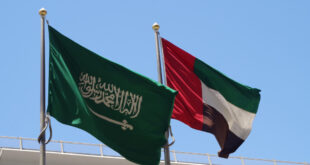 BEIRUT – Lebanon’s presidential election was postponed from Monday to February 11, the parliament speaker said on Sunday, announcing the 13th delay of a vote blocked by the country’s political crisis.
BEIRUT – Lebanon’s presidential election was postponed from Monday to February 11, the parliament speaker said on Sunday, announcing the 13th delay of a vote blocked by the country’s political crisis.
Rival Lebanese leaders have agreed on army chief General Michel Suleiman as the candidate to fill the presidency, which has been vacant since November 23 when the term of pro-Syrian President Emile Lahoud expired.
But Suleiman’s confirmation by the election in parliament has been held up because the anti-Syrian governing coalition and its Damascus-backed opponents are at odds over the make-up of a government that will take office after the vote.
Berri said in a statement that the delay was to give more time for talks as part of an Arab initiative to end the worst political crisis since Lebanon’s 1975-1990 civil war.
Arab League Secretary-General Amr Moussa said: “The Arab initiative has not hit a wall. Rather, perhaps it has reached a closed door that can be opened.”
Speaking after talks with Berri, Moussa said that time was “short so we must move quickly towards consensus and an election”, adding that “the matter requires a lot of work.” He said he would leave Beirut on Sunday.
The opposition, led by Hezbollah, has threatened civil disobedience if the political conflict is not resolved, increasing the risk of violence if there is no end to a standoff that began in November, 2006.
The crisis has also stoked sectarian tensions between Sunni Muslims loyal to governing coalition leader Saad al-Hariri and Shi’ite Muslims who back Hezbollah.
The Arab initiative was agreed by states including Syria and Saudi Arabia, whose own rivalry has complicated the search for an end to Lebanon’s crisis. Saudi Arabia is one of the foreign backers of the governing coalition.
The Arab plan calls for the election of Suleiman president, the formation of a national unity government and the drafting of a new law for a parliamentary election due in 2009.
The opposition wants veto power in the new cabinet or an equal three-way division of the seats with the governing coalition and the president. The governing coalition, whose foreign backers also include the United States, has rejected the idea of giving the opposition veto power.
 Eurasia Press & News
Eurasia Press & News


